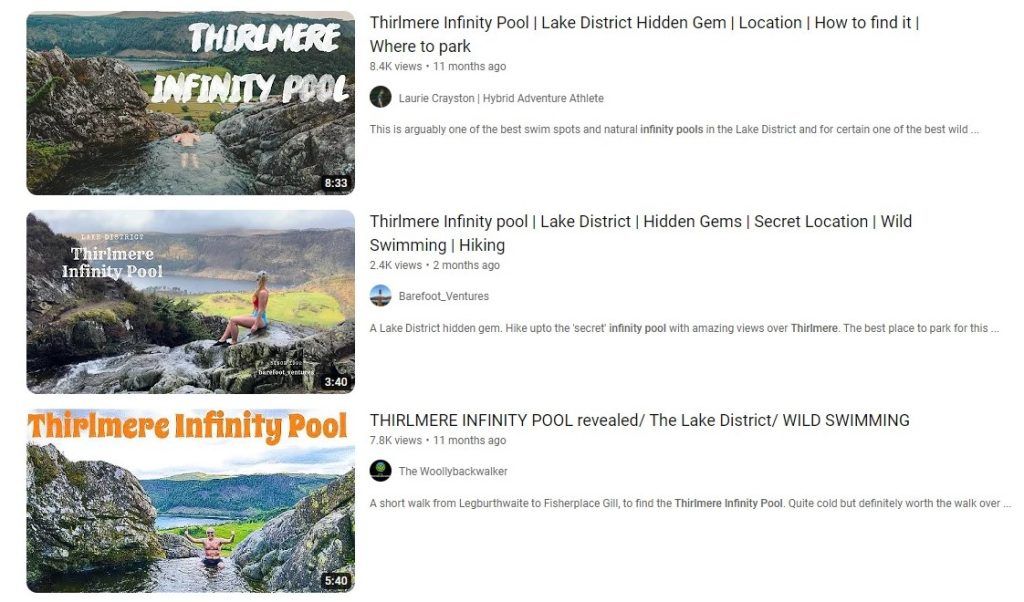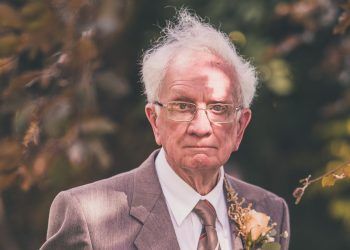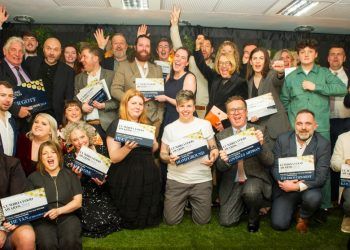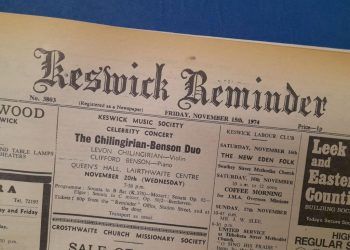
Social media sites such as Instagram and YouTube are changing how tourists behave in the Lake District, according to responsible travel bosses.
The booming online content sharing culture has caused a disconnect with the landscape as some visitors favour photo and film opportunities.
Tim Williamson, director of activist travel company Responsible Travel, was commenting this week on “over tourism” at Lake District beauty spots.
The stampede to sensitive sites is growing via the burgeoning online video and photo sharing industry, populated by increasing numbers of bloggers, influencers, content creators, stealth campers, web-trepreneurs and self-declared adventurers.
Places such as Keswick, Borrowdale, Braithwaite, Bassenthwaite, Buttermere and Thirlmere, are coming under growing strain and local authorities are unable to keep up.
Mr Williamson, of Brighton-based Responsible Travel, told the Reminder: “The growth of social platforms like Instagram has changed how we travel. Instead of seeking out deeper experiences where we stay longer and contribute positively to local people’s livelihoods, tourists are instead encouraged to simply tick off bucket list sites for the perfect, shareable photo – leaving behind little but discontent in their wake.
“Promoting the Lake District as a photo opportunity dehumanises it and doesn’t encourage visitors to live up to that responsibility.”
This week, a PR agency shared with the Reminder “the UK’s best hidden outdoor swimming pools” revealing “where it’s quietest and you can beat the crowds in the heatwave”.
The top five included a site in the Lake District, although representatives failed to respond to questions over how it could remain untouched or quiet if circulated to mass media.
Newspapers too commonly devise online listicles and a 10 things to tick off bucket list mentality, which could also be influencing visitor behaviour, said Mr Williamson.
The sudden explosion in visitors is believed to have been accelerated by viral exposure on social media of its nearby rock pool – re-branded a “natural infinity pool” by web traffic chasers.
The pool has been heavily plugged on travel blogger sites and racked up tens of thousands of views on platforms such as TikTok, YouTube, Facebook, Reddit and Pinterest, among others. But the effect is, it turns a quiet hidden gem into a tourist fleshpot with no infrastructure to cope.
Mr Williamson said: “When we visit somewhere we become a guest in someone else’s home. It’s our responsibility to treat it with respect. It doesn’t matter if that home just happens to be one of the most beautiful places in the UK.
“In places like the Lake District, staying longer and making our visit count is more important than ever. Anyone promoting holidays here should be encouraging visitors to stay in locally-owned accommodation – not Airbnbs owned by external businesses – and to make use of knowledgeable local guides to help them explore the region’s quieter corners to spread the load. If we do visit, we should also be paying our way more. Tourism taxes on overnight stays could be ring-fenced for investment in local nature conservation and to improve infrastructure to ease the burden on local communities.”
What do you think? Email [email protected]








